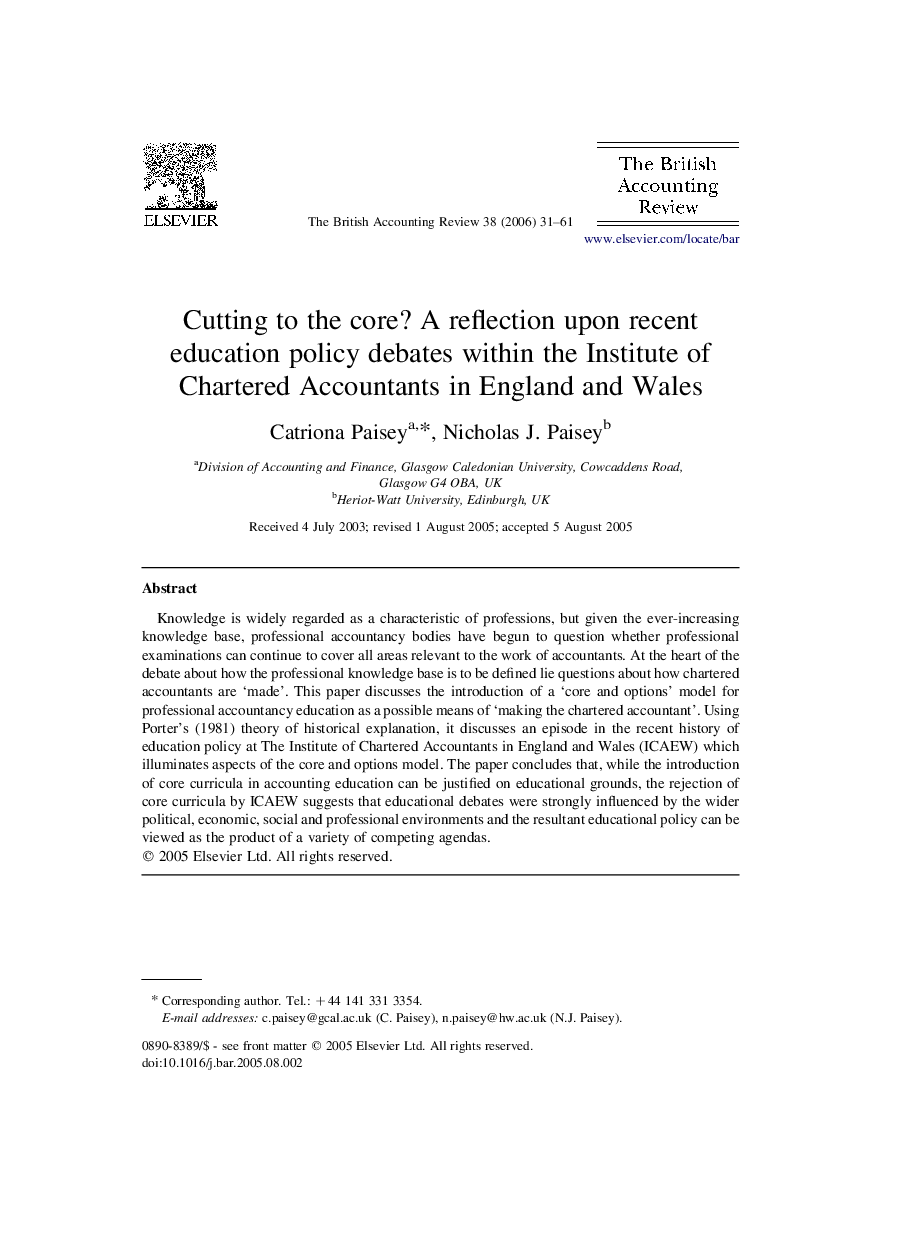| Article ID | Journal | Published Year | Pages | File Type |
|---|---|---|---|---|
| 1004262 | The British Accounting Review | 2006 | 31 Pages |
Knowledge is widely regarded as a characteristic of professions, but given the ever-increasing knowledge base, professional accountancy bodies have begun to question whether professional examinations can continue to cover all areas relevant to the work of accountants. At the heart of the debate about how the professional knowledge base is to be defined lie questions about how chartered accountants are ‘made’. This paper discusses the introduction of a ‘core and options’ model for professional accountancy education as a possible means of ‘making the chartered accountant’. Using Porter's (1981) theory of historical explanation, it discusses an episode in the recent history of education policy at The Institute of Chartered Accountants in England and Wales (ICAEW) which illuminates aspects of the core and options model. The paper concludes that, while the introduction of core curricula in accounting education can be justified on educational grounds, the rejection of core curricula by ICAEW suggests that educational debates were strongly influenced by the wider political, economic, social and professional environments and the resultant educational policy can be viewed as the product of a variety of competing agendas.
